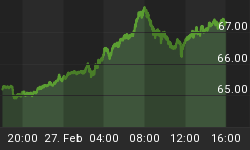After today's wages data, the markets are scaling back their expectations of another rate hike from the Bank of England (BoE) in November. However, as we've pointed out before, the members of the Monetary Policy Committee (MPC) will be monitoring the data to see if the overall picture continues to support the forecasts made in the August Inflation Report, in which case further tightening will be warranted. In particular, they will be watching to see whether above-target inflation starts to feed into inflation expectations and wages growth; and whether consumer spending and the housing market continue to show signs of strength. While today's wages data were a little softer than expected, the trend remains upward, and other data support the case for a Q4 rate hike.
Average earnings rose an annual 4.4% in the three months to July, just shy of the BoE's tolerance level of 4.5% - hence the slide in sterling and the uptick in interest rate futures - but still up from 4.3% in the three months to June, and still the highest rate of earnings growth in over a year. Meanwhile, the various indicators of UK unemployment point to a stable-to-falling unemployment rate in August. The ILO jobless rate held steady at 5.5% while the number of Britons claiming jobless benefit dropped sharply. With inflation expected to accelerate further in the coming months, just before the start of the January round of key pay negotiations, it is probable that average earnings growth will continue to creep upward - something the MPC members will want to nip in the bud.

Yesterday's CPI data also pointed to an upward price trend, with the headline rate rising 0.4% on the month and 2.5% on the year (-0.1% and +2.4%, respectively, in July). With the latest round of utility price increases kicking in this month and next, and university tuition fees also set to go up next month, higher headline rates can be expected in Q4.

Later today, the August housing market survey from the Royal Institute of Chartered Surveyors is likely to support earlier surveys from the Halifax and Nationwide lenders, showing house price inflation accelerating again. The August retail sales survey will be released tomorrow, while September 29 brings the August lending and credit reports and the latest GfK consumer confidence report. As we've noted before, it will take a number of downward data surprises to stay the BoE's hand in Q4, not just one slightly-weaker-than-expected number.















